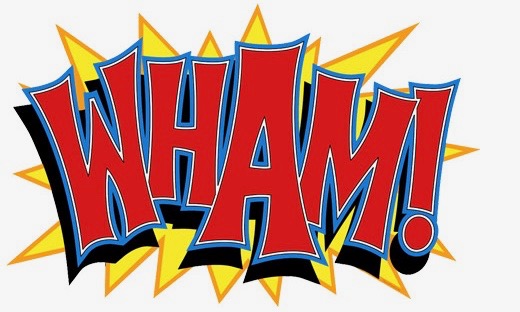Christian Education Series
RIGHTEOUS VIOLENCE
“The nations raged, but your wrath has come, and the time for judging the dead, for rewarding your servants, the prophets and saints, and all who fear your name, both small and great, and for destroying those who destroy the earth.”
God of Justice, scripture tells us that you are a jealous God who will judge our sinful and destructive natures. Likewise, we often desire to judge the sin in the world and act in violent ways to restore "justice." Yet, the Gospel reveals a merciful and gracious God who deeply loves us and who chooses to save us while we are still sinners. In the life of Jesus, we see how we ought to live, forgiving others and seeking reconciliation. Help us overcome our violent ways and look only to you as our source of righteousness. Amen.
I love superhero movies! And if I am being honest, before taking a course in seminary called “Faith and Film,” I had never given much thought to their cultural influence, theological value, or possible threat to religion. However, in exploring superhero movies for the final project of this class, I began to understand the perspective of my professor, Dr. Jon Pahl, who claims that superhero movies glorify redemptive and/or righteous violence and warns that these films reinforce American empire.
Most, if not all, superheroes are not innocent or blameless. They are every bit as violent as the villains. In the storyline of every superhero movie, the moment inevitably comes when violence can only be countered by more violence. Success or failure against the “bad guy” becomes irrelevant, the real victor is always violence itself. In no scene is this more evident than in the epic fight scene in Captain America: Civil War, in which the two sides engaging in violence are both made up of “heroes.” “Good guys” versus “good guys,” emphasizing the truth of most battles, that both sides are fighting for their understanding of “right.” There is a back and forth of violence, yet the viewer is left to question which side is “just.” As long as the violence is in response to wrong or enacted in order to subdue wrong, it is considered “heroic.” Yet, that is not the tragic reality in Civil War. As Rene Girard writes, “Tragedy is the balancing of the scale, not of justice but of violence” (Violence and the Sacred, 45).
This type of glorification of violence is played out in the real world as our nationalism claims that our violence against other nations is somehow just and heroic. It can be seen throughout Christian history, as violence is used “in the name of God” to bring people to faith. We justify violence by claiming it is sacred. While in his writing, Pahl is speaking of horror movies, I believe what he writes holds true for the young audience of superhero movies. "All the young viewers of these films are thus invited to invest themselves in the maintenance of the symbolic order which operates according to a religious logic in which sacrifice and violence [are] not only warranted, but unquestioned" (Empire of Sacrifice, 73). Superheroes often fight off evil with violence and justify their actions with claims of “right” and “justice.” Yet, as evident in a film like Civil War, we must remember that superheroes are not our "Redeemer." As explored in other sessions of this series, they are not our “savior.”
“So it will be at the end of the age. The angels will come out and separate the evil from the righteous and throw them into the furnace of fire, where there will be weeping and gnashing of teeth.
”
However, if Christians are honest, our God can be awfully violent in scripture. Of course, there are endless examples in the Old Testament, and perhaps some would find it easy to write off, claiming that the coming of our Savior Jesus Christ changes our God of judgment into a God of grace. There are, of course, strong theological problems with dividing our perspective of God in half by the two Testaments, but I won't get into that here. Rather, we can simply look in the New Testament to find a God who parables describe as constantly throwing people into “the darkness where there is weeping and gnashing of teeth.” We find a God who struck down Ananias and Sapphira for being selfish and lying. We are told of a second coming in which God will “destroy the destroyers.” Is God’s violence redemptive violence? In the name of God, in the name of “truth and justice,” can we truly carry out righteous violence? It would appear that it is not superhero movies influencing the world to act in misguided violence, but rather, it may be the very faith we feel is being corrupted that is influencing the movies being made.
In the latest Avengers movie, an all-powerful being is willing to sacrifice his child in order to save the universe from its own destructive nature. Yes, Thanos is willing to eliminate half the universe’s population, but tell me, what do you think dividing the sheep from the goats will look like? If Jesus was the blueprint for Superman, is God the blueprint for Thanos? Is religion the blueprint for superhero storylines? There is a lot to explore in this session, and I look forward to reading your thoughts and feedback...remember to stay constructive in disagreement!
Additional Resources
“Avengers: Infinity War” Presents a Villain For Our Times: CLICK HERE
Captain America and the Crusade against Evil: The Dilemma of Zealous Nationalism by Robert Jewett: CLICK HERE
Violence and the Sacred by Rene Girard: CLICK HERE
Empire of Sacrifice: The Religious Origins of American Violence by Jon Pahl: CLICK HERE
Captain America and the Nationalist Superhero: Metaphors, Narratives, and Geopolitics by Jason Dittmer: CLICK HERE
The Black Panther as a Nationalist Superhero: CLICK HERE



